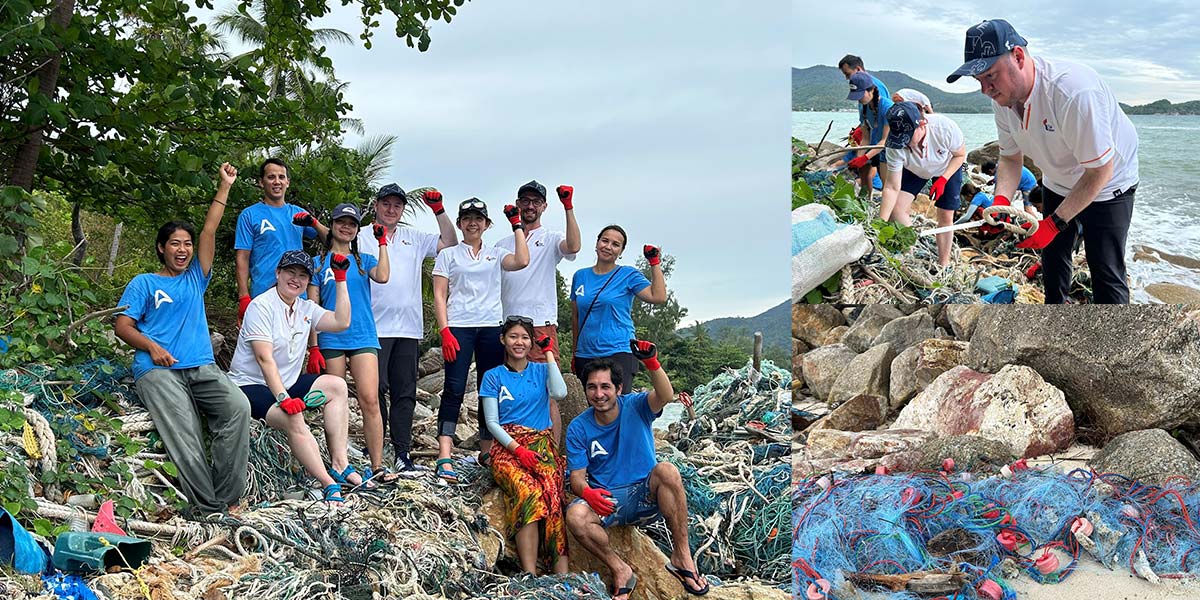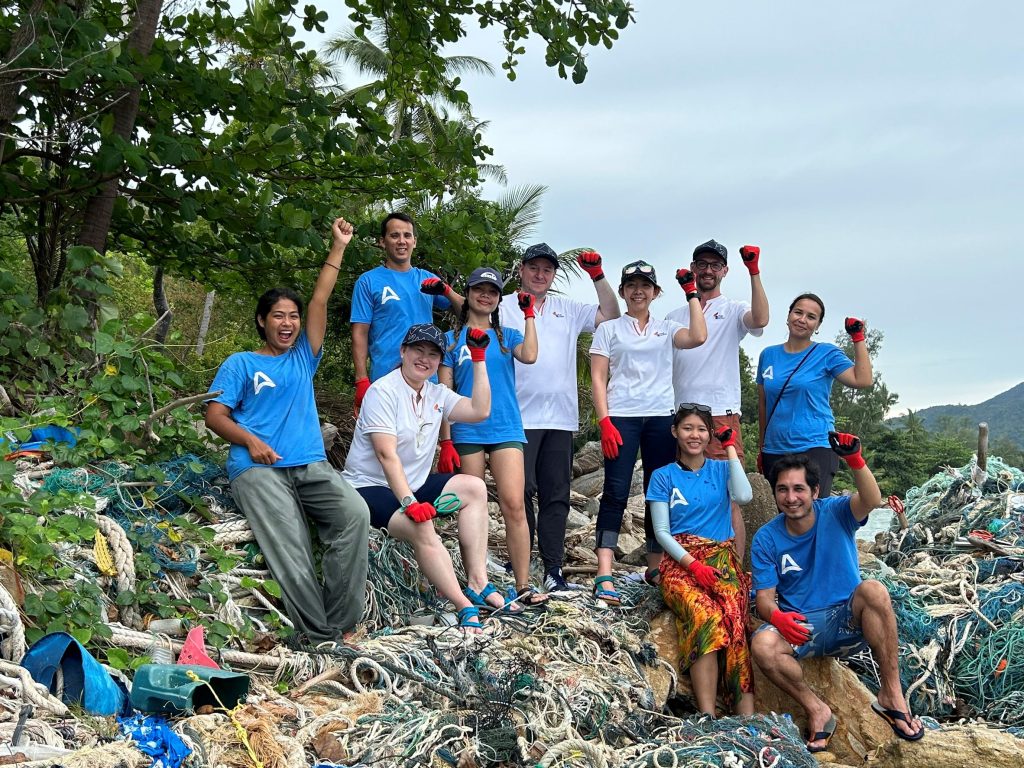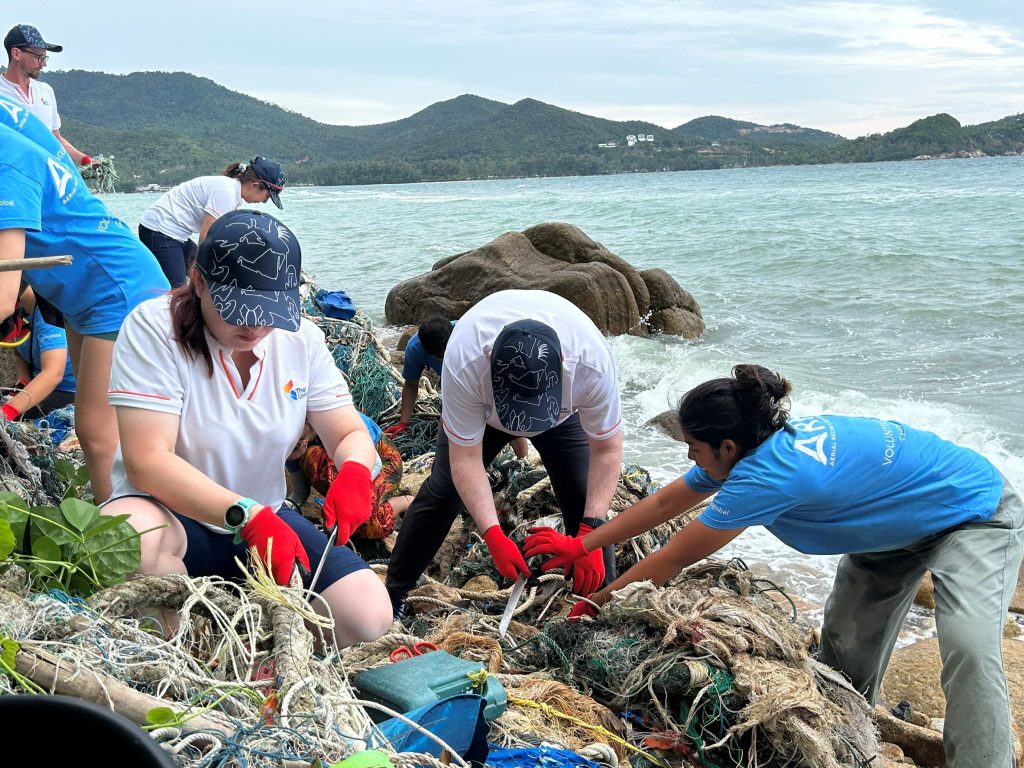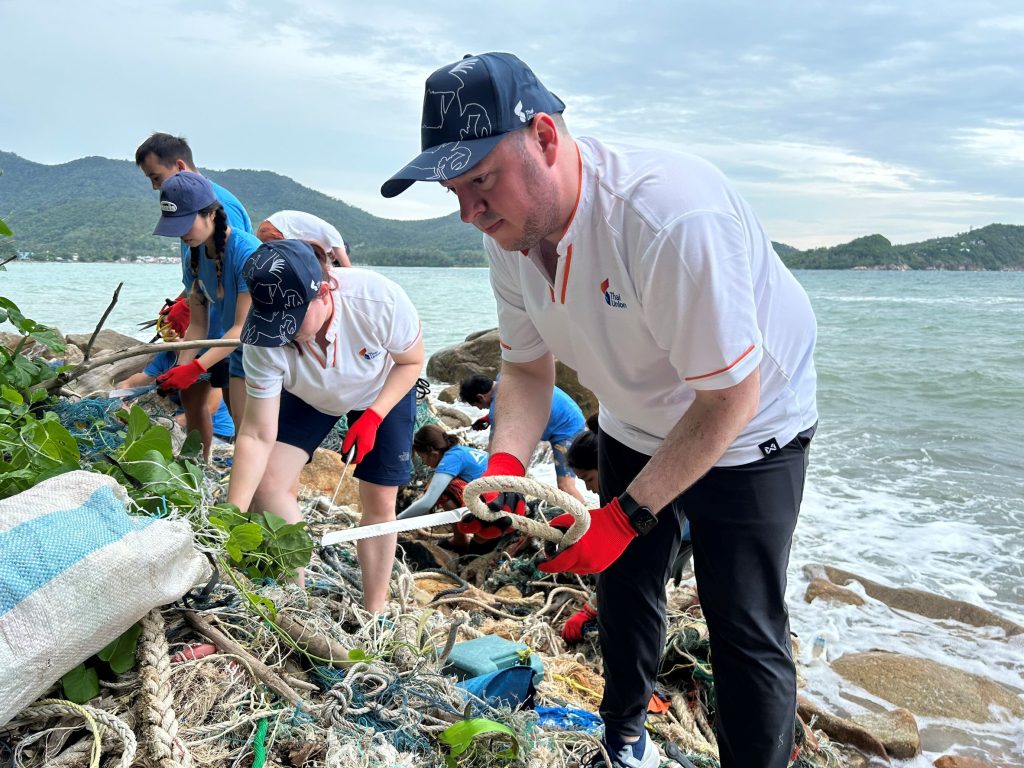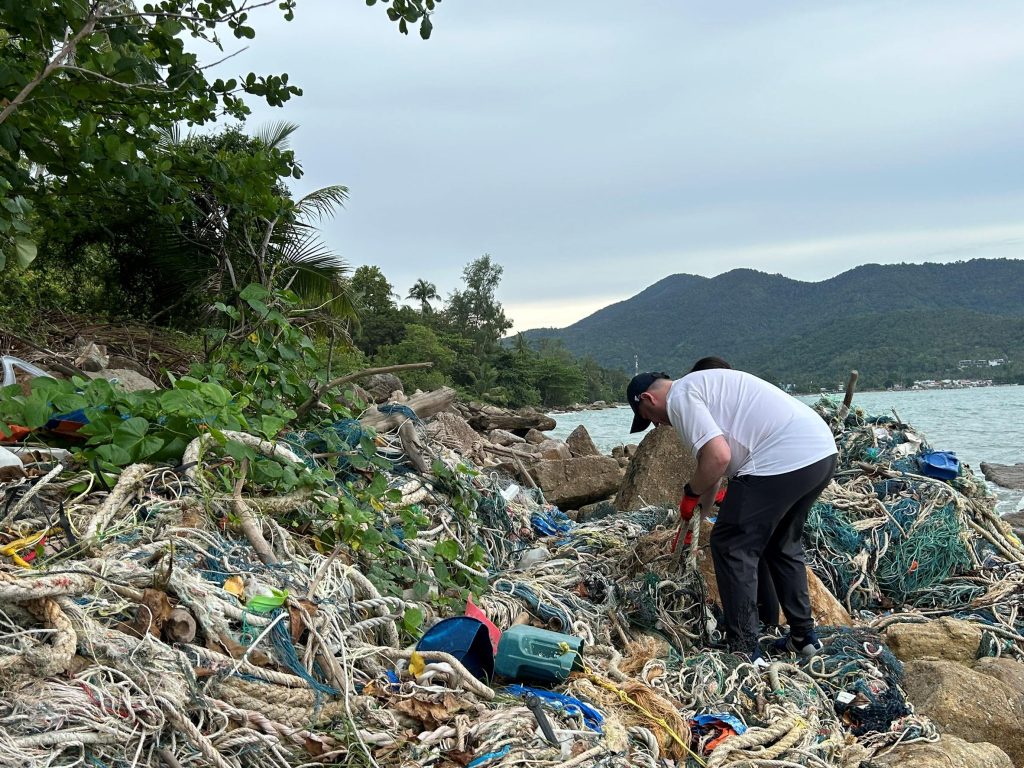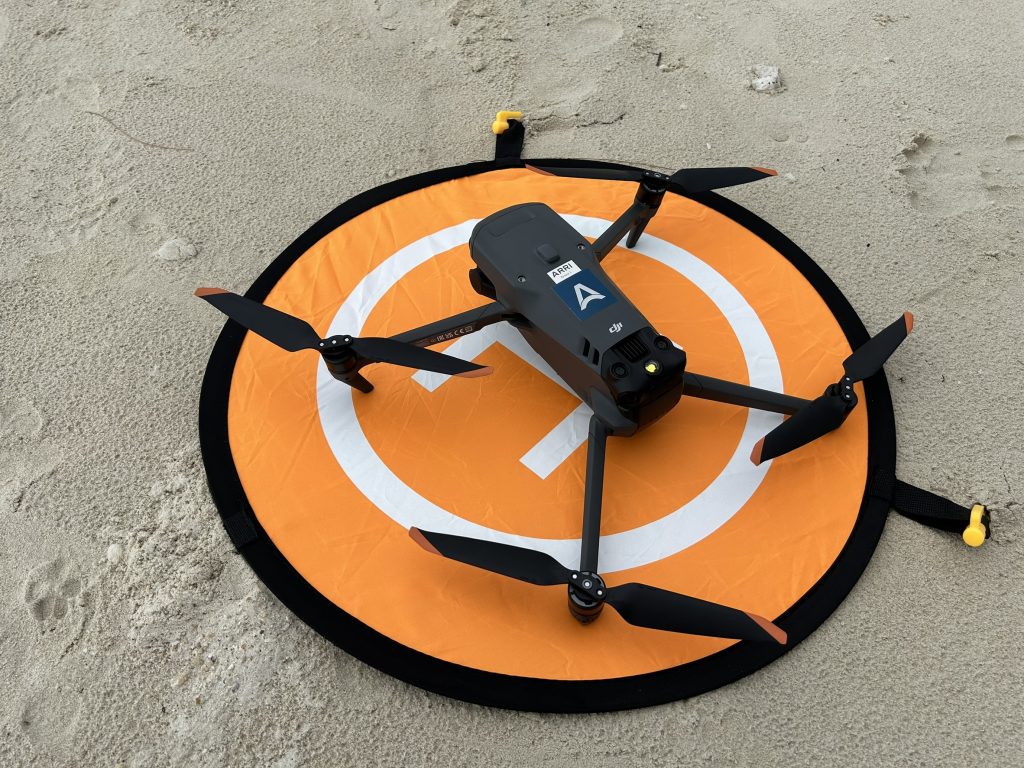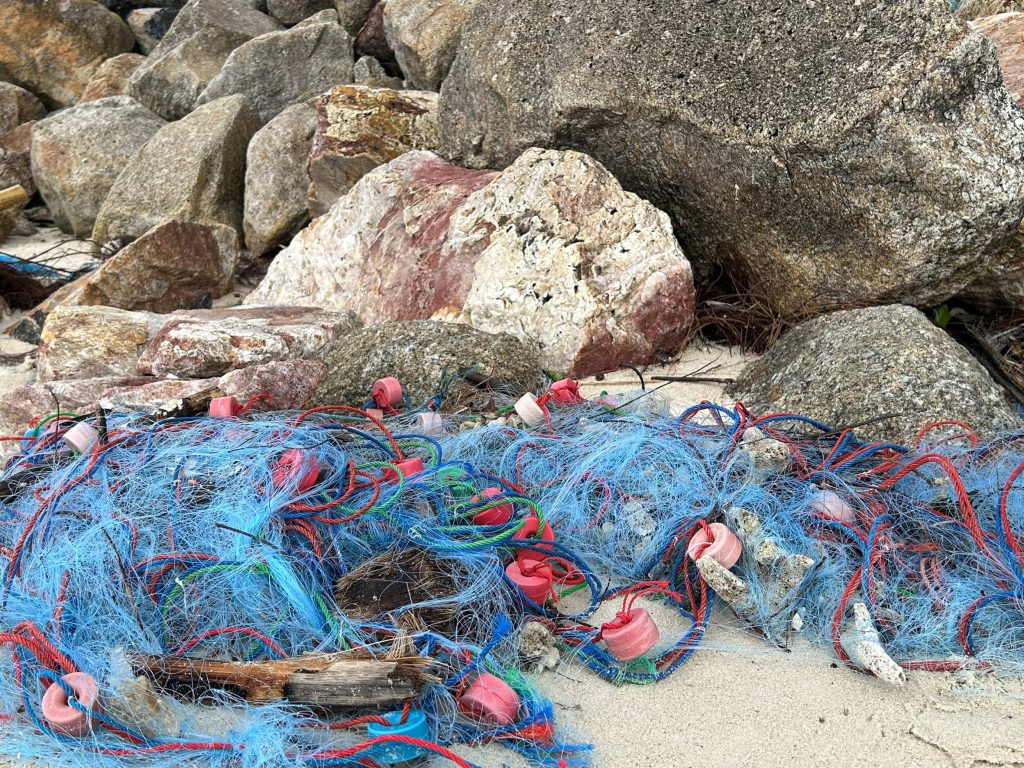Thai Union Group PCL, one of the world’s leading seafood producers, has partnered with the Aerial Recon & Recovery Initiative (ARRI) to deploy drones and artificial intelligence (AI) to locate and remove the deadliest form of plastic marine debris – abandoned, lost, or otherwise discarded fishing gear, known as “ghost gear” from coastal waters around Koh Phangan in southern Thailand.
The partnership, part of Thai Union’s global commitment under its SeaChange ® 2030 strategy to divert 1,500 tons of ocean-bound plastic by 2030, combines Thai Union’s sustainability leadership with ARRI’s advanced technology to help protect fragile marine ecosystems.
The collaboration builds on Thai Union’s wider partnerships tackling plastic pollution across multiple environments. These include work with Second Life to develop community-based recycling systems in southern Thailand, with Seven Clean Seas’ HIPPO (High Impact Plastic Pollution remOver), a solar-powered system capturing river waste in Bangkok, and global cleanup efforts that mobilize Thai Union employees and partners around the world.
“The scale of ocean plastic pollution demands fresh thinking,” said Adam Brennan, Chief Sustainability & Communications Officer at Thai Union. “By combining ARRI’s cutting-edge drone and AI technology with Thai Union’s sustainability expertise, we’re taking direct action to remove one of the ocean’s most persistent threats, and setting a new standard for how innovation and collaboration can restore ocean health.”
Harnessing Technology to Recover Ghost Gear
Ghost gear is one of the most destructive forms of marine debris, entangling marine life, damaging coral reefs, and threatening fish stocks and coastal livelihoods. Because it can drift unseen for years, locating and retrieving it has long been a challenge. The six-month project between Thai Union and ARRI will deploy drone and AI technology to scan and clear 12 square kilometers of coastal waters around Koh Phangan, an area rich in coral reefs and seagrass beds.
ARRI uses drones equipped with cameras that capture an image every two seconds, producing thousands of high-resolution images. These are processed using an AI program developed by ARRI and trained specifically to identify ghost gear, allowing them to pinpoint debris hotspots and carry out targeted retrieval missions with greater speed and efficiency.
Recovered materials will be weighed, sorted, and responsibly upcycled, supporting a circular economy while restoring vital marine habitats. Over the course of the project, ARRI and Thai Union expect to recover at least 3,000 kilograms of debris, directly protecting biodiversity and coastal ecosystems.
“Our technology allows us to scan large areas of ocean quickly and with incredible accuracy, enabling our teams to target recovery efforts where they will have the most impact,” said Dr. Tania Kanchanarak, Director and co-founder, ARRI. “Partnering with Thai Union means we can scale this work, engage more communities, and create long-term solutions to the ghost gear crisis.”
Innovative technology for a global challenge
The project also focuses on prevention, with ARRI working closely with local communities and fishers to build awareness about ghost gear, its environmental impact, and ways to prevent gear loss. Through education and collaboration, fishers are encouraged to properly dispose of damaged gear before it enters the ocean, reducing the amount of debris that needs to be recovered in the future and enhancing long-term ocean health. It also supports Thai Union’s broader purpose of “Healthy Living, Healthy Oceans”, ensuring that marine ecosystems continue to sustain communities through several initiatives.
In southern Thailand, Thai Union is also working with Second Life, which empowers island and coastal communities to collect and recycle ocean-bound plastic, turning waste into income and new materials.
In Bangkok, Thai Union’s partnership with Seven Clean Seas sees floating plastic removed from the Chao Phraya River before it reaches the Gulf of Thailand.
Thai Union also mobilizes employees and partners through global cleanup efforts, across Asia, Europe, Africa, and North America, reinforcing shared responsibility for protecting the oceans.
Beyond these projects, Thai Union also works through global alliances such as the Global Ghost Gear Initiative (GGGI) and the International Seafood Sustainability Foundation (ISSF) to advance industry-wide accountability and innovation in marine-debris reduction and responsible fishing.
“The challenge is enormous, but progress comes from partnerships,” Brennan added. “From drones to AI to river recovery and circular recycling, these collaborations show what’s possible when industry, science and communities work together to tackle ocean plastics.”

